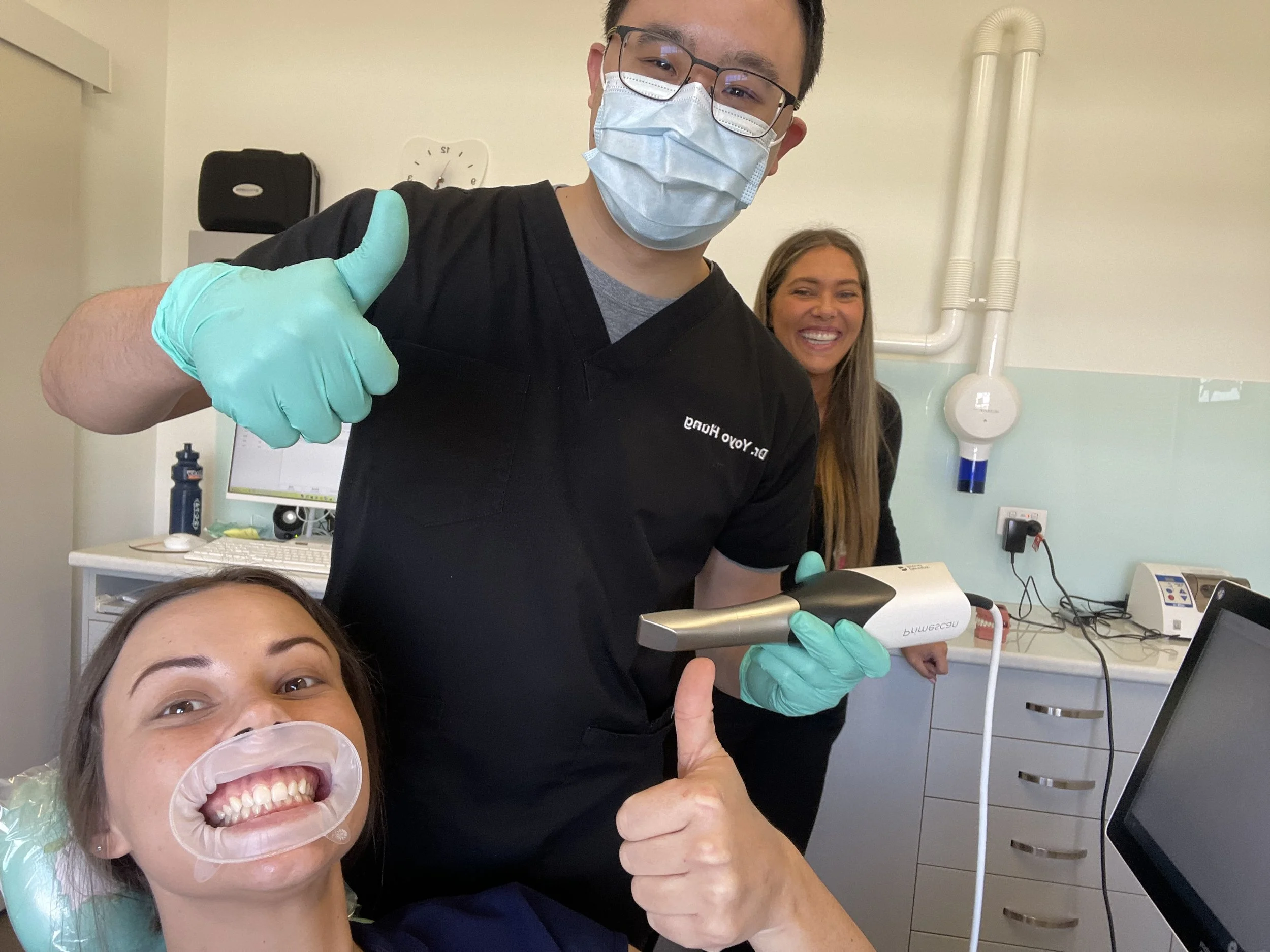General Dentistry
Mercury-Free Fillings
Amalgam (mercury) fillings were once the most commonly used material to repair teeth. However, amalgam is a metal material which expands as it ages, causing leakage and cracked teeth. Because of this, we don’t use amalgam fillings at Jasper Dental. Moreover, we’re happy to replace amalgam fillings with tooth-coloured composite fillings, which have an improved combination of strength, finish and longevity.
Root Canal Treatment
The aim of a root canal treatment is to save a tooth that has been damaged by decay, disease or injury. Root canal treatment will eradicate pain caused by an infected nerve and save your natural tooth from extraction.
Signs that you may need root canal include swelling of the cheek or gums, extreme sensitivity to hot and cold, consistent throbbing pain, pain when chewing, flashes of pain without warning or trauma to your teeth or jaw. Please seek immediate dental treatment if you experience any of these symptoms.
After a root canal has been started, the pain in the tooth will temporarily go away. It’s important that you finish a root canal treatment to prevent future pain and infection and reduce the risk of a broken tooth.
Gum Disease Treatment
Improper oral hygiene causes plaque to accumulate at the base of the tooth where it meets the gum. This causes inflammation which can lead to Gingivitis and Gum Disease. Redness, swelling and bleeding are common indicators of inflammation.
Remember: healthy gums don’t bleed!
Gingivitis is reversible with professional tooth cleaning and good regular oral care at home. However, Gum Disease is more serious as the plaque contains destructive bacteria that causes loss of the gums and bone that surround the teeth. Additionally, some medical studies have suggested a link between the bacteria associated with gum disease and an increased risk of some types of heart disease.
Although Gum Disease isn’t usually painful, common symptoms include gum recession and loose teeth. With appropriate professional care, gum disease can usually be stabilised.
Extractions
When a tooth is removed, it’s called an extraction. If your tooth needs to be removed, your dentist will have thoroughly examined the tooth, and can provide an explanation as to why the tooth can’t be retained. An x-ray will be taken to help plan the best way to remove the tooth and to see if an abscess is present.
When you lose a permanent tooth, you can experience problems with appearance, biting, chewing and food packing. Alternate treatments will be offered when suitable.
Dental Emergencies
Dental Emergencies include trauma or knocked out teeth, chipped or broken teeth, cracked teeth, toothaches, abscesses and swelling. If you are in pain, please call us straight away and we’ll do our best to find you an appointment.
For a knocked out tooth, please seek IMMEDIATE dental treatment. If it is a baby tooth, do not replace the tooth. For adult teeth, pick up the tooth by the crown (top) and avoid touching the root of the tooth. If the tooth is dirty, quickly wash it with cold water, no more than a few seconds. Replace the tooth immediately. Hold the tooth by the crown (top) and slowly push it back into the gum where it came from. If the tooth can’t be placed back into the gum, place in milk or wrap in plastic and immediately contact the dental surgery.
An abscessed tooth is a serious infection that needs to be treated immediately. If the abscess is not treated, it can lead to a serious infection in the jaw bone, teeth and surrounding tissues. The risk of developing an abscess increases if you do not receive treatment for a cracked tooth, exposed nerve or deep cavity. Signs and symptoms of an abscess include spontaneous pain, sensitivity to hot and cold, pain when biting or chewing, red and swollen gums, bad taste in the mouth, fever, loosening of the tooth, oozing of pus, facial swelling and headaches.
Chipped, broken and cracked teeth can be accompanied by erratic pain while chewing and/or pain when your tooth exposed to temperature extremes (hot and cold). Because cracked and broken teeth can caused exposure of the tooth nerve, we recommend seeking dental treatment as soon as possible to prevent further complications.
Wisdom Teeth Removal
Our mouth often doesn’t have the space to accommodate wisdom teeth and they are more difficult to keep clean. Thus, infection, crowding, and decay are more common. Having them removed may save you from pain and/or further oral complications. However, not all patients need their wisdom tooth removed.
IV Sedation
We understand that dental visits can be stressful for some patients. That’s why we offer IV sedation, a safe and effective way to help you feel completely relaxed during your procedure. Administered by an anaesthetist, IV sedation allows you to remain conscious but deeply at ease, often with little to no memory of your treatment. Whether you experience dental anxiety, have a strong gag reflex, or need extensive dental work, IV sedation can make your visit comfortable and stress-free.
Contact us today to learn more about IV sedation and whether it’s right for you!
Dentures
We make and repair most types of dentures including implant retained dentures, chrome partial dentures and full upper and lower acrylic dentures. For those who can't wear regular dentures or whose dentures are loose and cause discomfort, implant supported dentures may be an option. Implant supported dentures provide more stability and may allow you to eat a larger variety of food than traditional dentures.
Happy Gas
Nitrous oxide, commonly called Happy Gas, is a way to help reduce pain and anxiety during dental treatment—it can be helpful for treating children who are nervous about receiving dental treatment. Nitrous oxide is inhaled through small mask that fits over the nose. Your child will still be aware of what’s happening but will feel calm and comfortable throughout.



